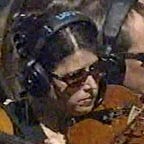The Ojibwe/Ojibwa Hymnal
One of the highlights of our SCSM conference at St. Michael’s College in Toronto, Ontario last February was the keynote by The Most Rev. Mark MacDonald, the Anglican Church of Canada’s first National Indigenous Anglican Archbishop. He spoke about the history and the sometimes subversive practice of singing hymns in Ojibwe.
MacDonald began his talk with a story about a group of people paddling a canoe across Lake Superior. In the birch bark canoe was a local priest named Father Buragga, a number of trappers, and a few seminarians. Paddling the canoe were two Ojibwe, who were not Christians. When they were part way across the lake a large storm moved quickly toward them. The trappers began to curse, the seminarians pulled out their rosaries and prayed, and the Ojibwe paddlers put down the paddles and sang an Anglican hymn in Ojibwe, “A Charge to Keep Have I.” Immediately the clouds parted, the storm dissipated, and the paddlers continued to cross the lake.
One thread Archbishop MacDonald draws out of this story is the unexpected pervasiveness of this hymn-singing tradition. He mentioned that he has found this hymnal in most of the Native and Indigenous communities that he has visited in North America, with many people owning a personal copy. The hymnal was translated in the mid-1800s by evangelical missionaries, and then compiled by Rev. Edward C. Kah-O-Sed (if the above version of the hymnal is correct). He points out that this hymnal helped to create a distinctive tradition of Hymn Sings, where large communities would gather around food, fellowship, signing, and dancing, often extending into the next morning. This tradition of gathering and singing continued, despite Indigenous worship being outlawed in Canada until the 1960s. Often, priests would wonder why churches were empty on Sunday morning, yet these gatherings were large and drew in folks from all around the area.
MacDonald argues the Hymn Sings mark the primary location of how theology has been and is done within Indigenous communities in North America. As the Creator sings the world into being, so do whole communities come together to sing their stories and song, creating a distinctive theological and liturgical way of Understanding God, neighbor, and creation.
For more on the history of the Ojibwe Hymnal and this distinctive tradition of singing, Archbishop MacDonald recommended:
Michael D. McNally, Ojibwe Singers: Hymns, Grief, and a Native Culture in Motion (Minnesota Historical Society Press, 2009). This was originally published by Oxford University Press in 2000 and can still be purchased as an eTextbook with other versions still available on Amazon, etc.
Here are a few versions of the hymnal online:
[archiveorg ojibwanugumoshng00jone width=560 height=384 frameborder=0 webkitallowfullscreen=true mozallowfullscreen=true]
And here is a recording of a hymn sing recorded March 27 at St. Antipas, Redby in northern Minnesota:
